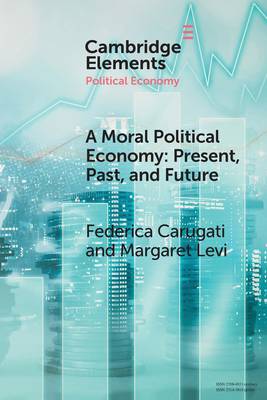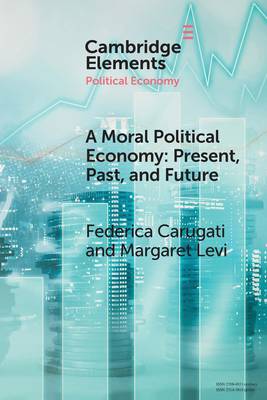
- Afhalen na 1 uur in een winkel met voorraad
- Gratis thuislevering in België vanaf € 30
- Ruim aanbod met 7 miljoen producten
- Afhalen na 1 uur in een winkel met voorraad
- Gratis thuislevering in België vanaf € 30
- Ruim aanbod met 7 miljoen producten
Zoeken
€ 33,45
+ 66 punten
Omschrijving
Economies - and the government institutions that support them - reflect a moral and political choice, a choice we can make and remake. Since the dawn of industrialization and democratization in the late eighteenth century, there has been a succession of political economic frameworks, reflecting changes in technology, knowledge, trade, global connections, political power, and the expansion of citizenship. The challenges of today reveal the need for a new moral political economy that recognizes the politics in political economy. It also requires the redesign of our social, economic, and governing institutions based on assumptions about humans as social beings rather than narrow self-serving individualists. This Element makes some progress toward building a new moral political economy by offering both a theory of change and some principles for institutional (re)design.
Specificaties
Betrokkenen
- Auteur(s):
- Uitgeverij:
Inhoud
- Aantal bladzijden:
- 94
- Taal:
- Engels
- Reeks:
Eigenschappen
- Productcode (EAN):
- 9781108819398
- Verschijningsdatum:
- 24/06/2021
- Uitvoering:
- Paperback
- Formaat:
- Trade paperback (VS)
- Afmetingen:
- 152 mm x 229 mm
- Gewicht:
- 136 g

Alleen bij Standaard Boekhandel
+ 66 punten op je klantenkaart van Standaard Boekhandel
Beoordelingen
We publiceren alleen reviews die voldoen aan de voorwaarden voor reviews. Bekijk onze voorwaarden voor reviews.








